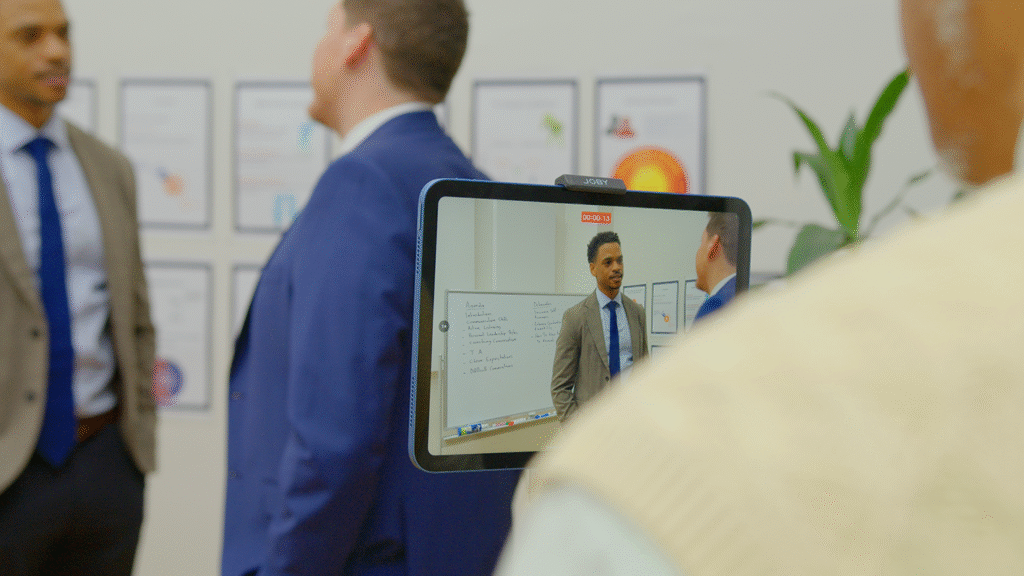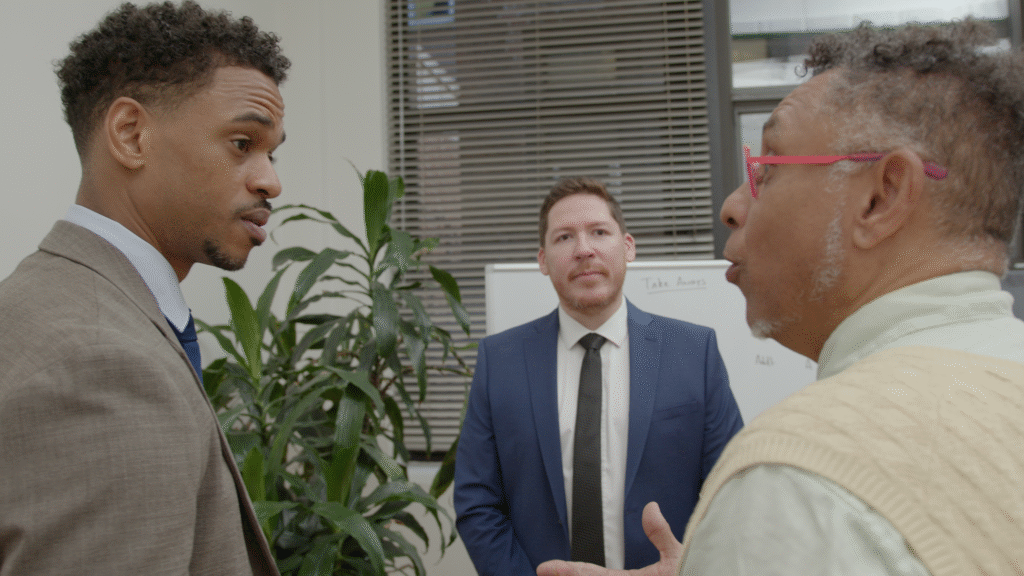
Discovery interviews are his is hisfirst step in designing any program, because they reveal the real story beneath the surface — what people actually believe, value, fear, and experience.
Most leaders have unwarranted optimism about their own capabilities. Kevin uses role play, filmed playback, and real-time coaching to increase self-awareness and allow leaders to practice new skills in real time.


His drama-based leadership workshops use actors to role-play scripted scenes that mirror real organizational dynamics. After each scene, Kevin uses his unique skills to hold a mirror up, challenge the narratives and bring awareness.